Published May 23, 2020
One Trek Mind: Star Trek and the Worlds of Organized Crime
Only Star Trek could meld Utopia and crime so perfectly.
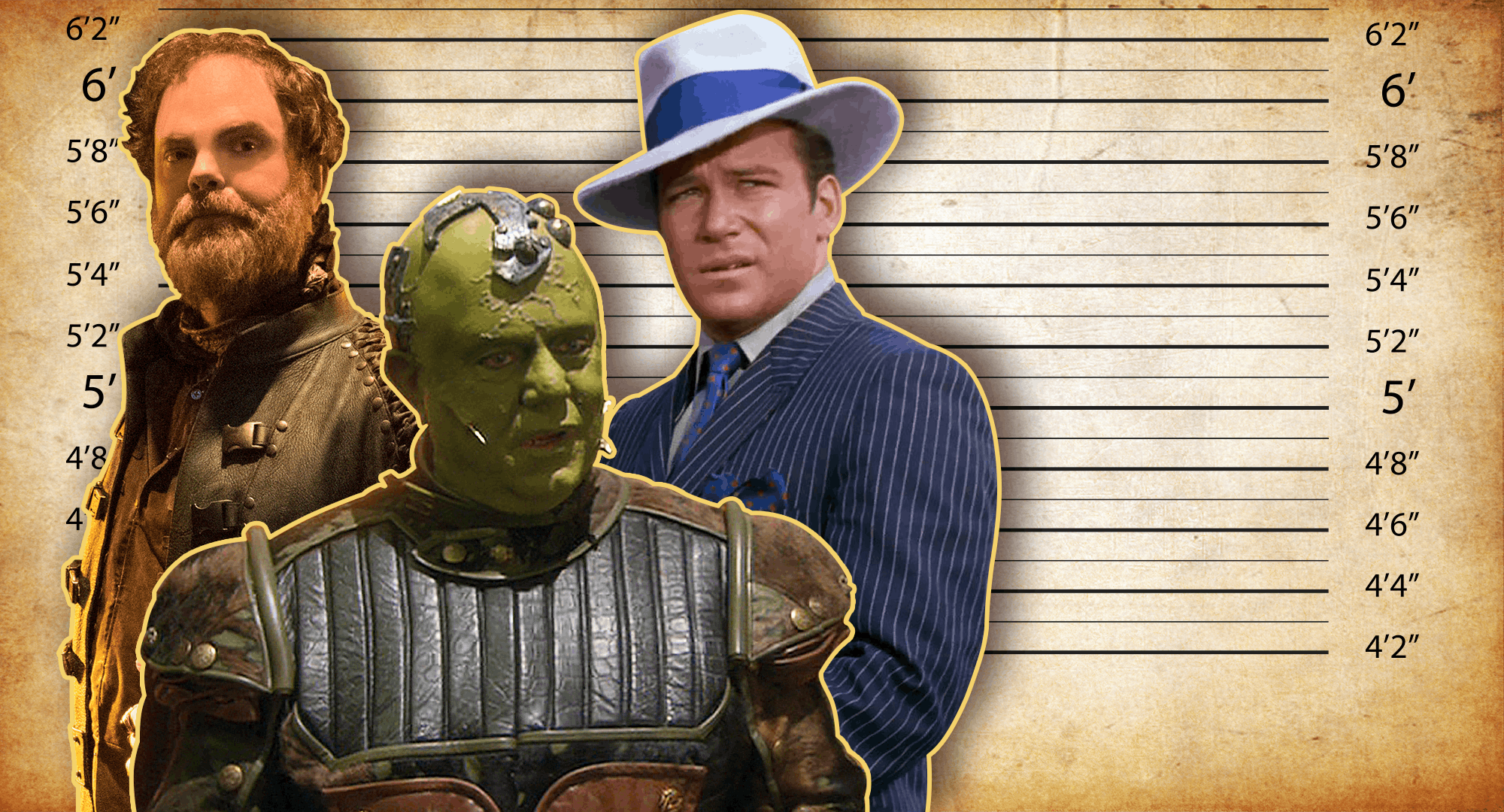
StarTrek.com | Shutterstock/Sk_Advance studio, 4 Girls 1 Boy
Gene Roddenberry's vision of the future was one of a classless utopia. It's startling when you consider that the show kicked off during the apex of the Cold War, and such theories were synonymous with America's ideological foe, Communism. “People are no longer obsessed with the accumulation of things," Captain Picard told a cryogenically frozen 20th-century human awakened aboard the Enterprise. “We've eliminated hunger, want, the need for possessions. We have grown out of our infancy.”
But what works in the United Federation of Planets doesn't necessarily work for the rest of the galaxy. Wherever there is a need for money you'll find those who are ready to cheat and steal. Putting aside our friends from Ferenginar, for whom outfoxing others to increase profit margins is an integral part of their culture, Star Trek has always had its share of gangsters, profiteers and a seamy space underworld.
Mudd
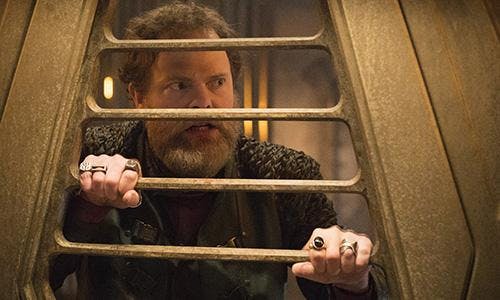
The first man who comes to mind, naturally, has a name that fits the bill: Mudd. Harcourt Fenton Mudd is a drug-pusher who treats women as chattel. He had a silver tongue and never came across as a dangerous, violent threat, and our first encounters in The Original Series positioned him almost as comic relief instead of a true villain. Captain Kirk even offered to be a character witness at his trial at the end of “Mudd's Women.” He was bad, but not that bad.
Mudd returned and attempted to steal the Enterprise in “I, Mudd,” and cooked up a love potion scheme in The Animated Series' “Mudd's Passion.” His recent return to Star Trek was in a new guise, played by Rainn Wilson a decade prior to his first Enterprise encounter on Discovery. The younger Mudd is a little more sinister, ready to sell out his cellmates in a Klingon brig. Plus, he keeps a large, gross bug (named Stuart) as a pet. He's ready to throw the U.S.S. Discovery into a dangerous time loop, but mostly for his own personal gain, not out of any interplanetary malfeasance.
Spocko
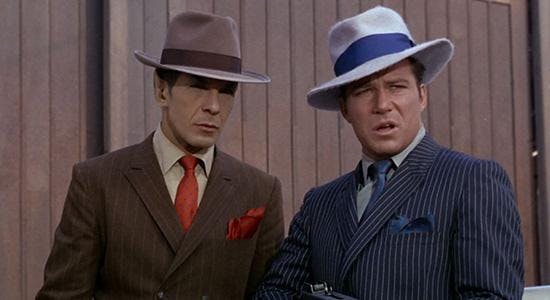
Star Trek's initial encounter with true organized crime was the episode “A Piece of the Action,” in which the planet Sigmia Iotia II has a culture developed from some Earth detritus left behind by a previous Federation visit. “The Book,” as the residents call it, is a text about Chicago Mobs of the 1920s, and the pinstripe suit and fedora-wearing gangsters made it their bible. In order to outsmart the Bosses and return the Enterprise to safety, Captain Kirk is forced to assume an Al Capone-esque identity and call his first officer “Spocko,” which, when I first saw this when I was nine years old, was hilarious. (OK, still is.)
Orions
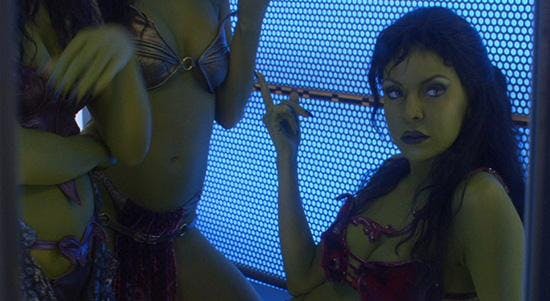
The classic “green girl” of Star Trek lore, is, we now know, an “Orion Slave Girl,” but as the storytelling universe expanded (and some of Star Trek's sexist tropes evolved) we learned a great deal more about the Orion Syndicate. Despite the image of the dancing, subservient woman (the first images of which date to the first pilot “The Cage,”) Orion is actually a matriarchal society. It is the men who are slaves to the women, but few off-worlders know this. Orions are generally meant to be avoided, unless you need something and there is no legitimate place to turn. (This is the species that thought nothing to of putting a stop to the treaty at Babel to continue draining dilithium from Coridan.)
While Orions can be seen in everything from Enterprise to the films in the Kelvin Timeline, the most detailed Orion stories are found aboard the Omari-Ekon, the semi-autonomous ship run by merchant-prince (and a borderline good guy) Ganz, in the marvelous Star Trek Vanguard book series.
In the season finale of Discovery season one, “Will You Take My Hand?”, seedy skid row of a near-Blade Runner-esque quality is seen all over the Orion outpost on the Klingon Homeworld. The Terran Emperor (also known as Mirror Universe Georgiou) is quick to rent a male and female Orion for sexual purposes (and also to get information, in a roundabout James Bond kind of way) and Cadet Tilly runs afoul of Clint Howard as an Orion drug pusher. He offers her some huffs of volcanic vapor. (It is unknown if these specific lava rocks came from the Kri'stak mountains or elsewhere.) When Tilly rouses herself from her stupor, she finds the mini-ogre trying to steal her case which, unbeknownst to her, carries a bomb. He didn't know it; either; he just was looking for something, anything to sell on the black market.
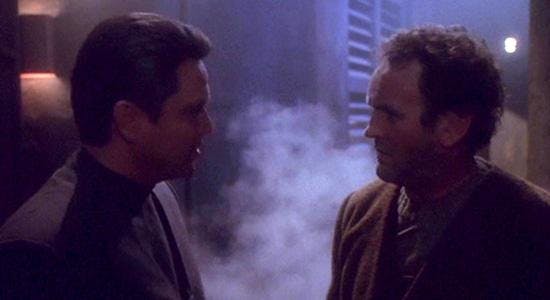
But the best look at the Orion Syndicate doesn't even focus on Orions too much, just the trail of woe that criminal behavior leaves in its wake. “Honor Among Thieves” from Deep Space Nine's sixth season, is one of a number of heartbreaking O'Brien-centric stories. This time, he is sent to a planet, Farius Prime, with the goal of infiltrating the crime ring, befriending someone and ultimately betraying him. It's like Donnie Brasco in space! It's yet another example of Deep Space Nine refusing to deal in strict black and whites, and also features an adorable cat named Chester.
The criminal act is that I'm surely leaving out one of your favorite rogues. Is it Berlinghoff Rasmussen? Is it Cyrano Jones? Let us know your picks @StarTrek on all things social!
Jordan Hoffman (he/him) is the former host of Engage: The Official Star Trek Podcast. He is also a writer, critic and lapsed filmmaker living in New York City. His work can be seen on Film.com, ScreenCrush and Badass Digest. On his BLOG, Jordan has reviewed all 727 Trek episodes and films, most of the comics and some of the novels.
Star Trek: Discovery streams exclusively on CBS All Access in the United States and is distributed concurrently by CBS Studios International on Netflix in 188 countries and in Canada on Bell Media’s CTV Sci-Fi Channel and OTT service Crave.

